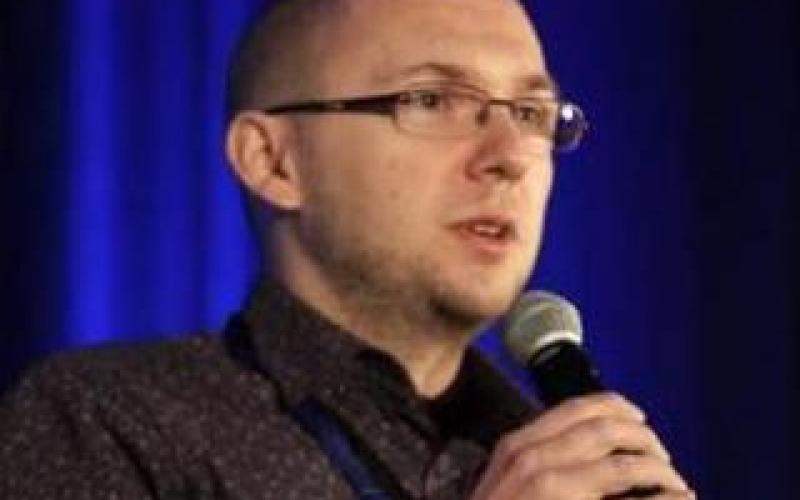Conference: Nov 13-15, 2017
Workshops: Nov 16-17, 2017
Track: Bare Metal Performance
Location:
- Bayview AB
Day of week:
- Wednesday
How do you get more bang for your buck? It’s time to stop wasting CPU cycles, battery, and time. In this track we’ll look at new (and rediscovered) ways to remove the bloat and overhead from your existing code and figure out ways to structure systems to get the most out of the hardware. From the rise of natively compiled languages like Go and Rust, bypassing kernels, performance optimization tools, and more.
by Yao Yue
Distributed Systems Engineer Working on Cache @Twitter
In-memory caching in a distributed setting is ubiquitous, of which users usually expect both high throughput and low latencies. Meanwhile, to actually achieve them requires understanding the details and subtleties in low-level system behavior, including memory management, threading model, locking, network I/O, etc.
Pelikan is a framework to implement distributed caches such as Memcached and Redis. This talk discusses the system aspects that are important to the performance, especially...
by Sergey Kuksenko
Java Performance Engineer @Oracle
Java is a hardware independent language. However, it is hard to make high performance application without hardware knowledge. Java developers who really care about performance shouldn't be afraid to dig into HW details. Each modern CPU has an ability to look under cover and understand what happens from the performance point of view.
In the session we will understand how Performance Monitoring Unit (PMU) works, what Hardware Counters (HWC) are, which tools have friendship with Java and...
by Dan Luu
BitFunnel @Microsoft & previously TPU @Google
We’re going to use search as a case study on how to reason about performance before coding. Imagine you're building a search engine from scratch. There are maybe a trillion documents on the Internet. If each each document is 10kB, that's 10 petabytes of data! How do you query 10PB of data in a fraction of a second?
That might take years to implement, but it’s surprisingly easy to reason about the performance of various possible designs. We’ll talk about how to estimate performance...
by Avi Kivity
CTO & Co-Founder ScyllaDB, Creator of KVM
A little more than a year ago, ScyllaDB burst upon the NoSQL scene, providing Apache Cassandra compatibility with ten times the throughput on similar hardware, as well as lower latency and jitter.
This talk will cover the many design decisions that led to this achievement, from the programming language and programming model, through low-level details like the memory management scheme and networking stack, and up to the advanced cache design.
...
by Jamie Turner
Principal Engineer @Dropbox
Magic Pocket, Dropbox's multi-exabyte file storage system, spans 10s of thousands of storage servers containing nearly a million total disks. Optimizing the storage of file data to use these resources as efficiently as possible is of key to Dropbox's infrastructure strategy.
So in 2015, Dropbox started a project codenamed "Diskotech", which radically reexamined the profile of storage servers, leading to a new design that customized the software and hardware to match each other...
.
Tracks
Monday Nov 7
-
Architectures You've Always Wondered About
You know the names. Now learn lessons from their architectures
-
Distributed Systems War Stories
“A distributed system is one in which the failure of a computer you didn't even know existed can render your own computer unusable.” - Lamport.
-
Containers Everywhere
State of the art in Container deployment, management, scheduling
-
Art of Relevancy and Recommendations
Lessons on the adoption of practical, real-world machine learning practices. AI & Deep learning explored.
-
Next Generation Web Standards, Frameworks, and Techniques
JavaScript, HTML5, WASM, and more... innovations targetting the browser
-
Optimize You
Keeping life in balance is a challenge. Learn lifehacks, tips, & techniques for success.
Tuesday Nov 8
-
Next Generation Microservices
What will microservices look like in 3 years? What if we could start over?
-
Java: Are You Ready for This?
Real world lessons & prepping for JDK9. Reactive code in Java today, Performance/Optimization, Where Unsafe is heading, & JVM compile interface.
-
Big Data Meets the Cloud
Overviews and lessons learned from companies that have implemented their Big Data use-cases in the Cloud
-
Evolving DevOps
Lessons/stories on optimizing the deployment pipeline
-
Software Engineering Softskills
Great engineers do more than code. Learn their secrets and level up.
-
Modern CS in the Real World
Applied, practical, & real-world dive into industry adoption of modern CS ideas
Wednesday Nov 9
-
Architecting for Failure
Your system will fail. Take control before it takes you with it.
-
Stream Processing
Stream Processing, Near-Real Time Processing
-
Bare Metal Performance
Native languages, kernel bypass, tooling - make the most of your hardware
-
Culture as a Differentiator
The why and how for building successful engineering cultures
-
//TODO: Security <-- fix this
Building security from the start. Stories, lessons, and innovations advancing the field of software security.
-
UX Reimagined
Bots, virtual reality, voice, and new thought processes around design. The track explores the current art of the possible in UX and lessons from early adoption.




